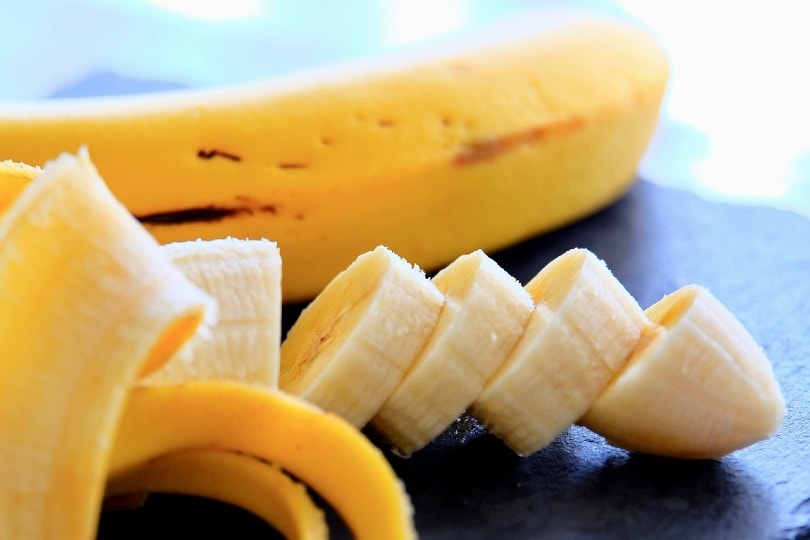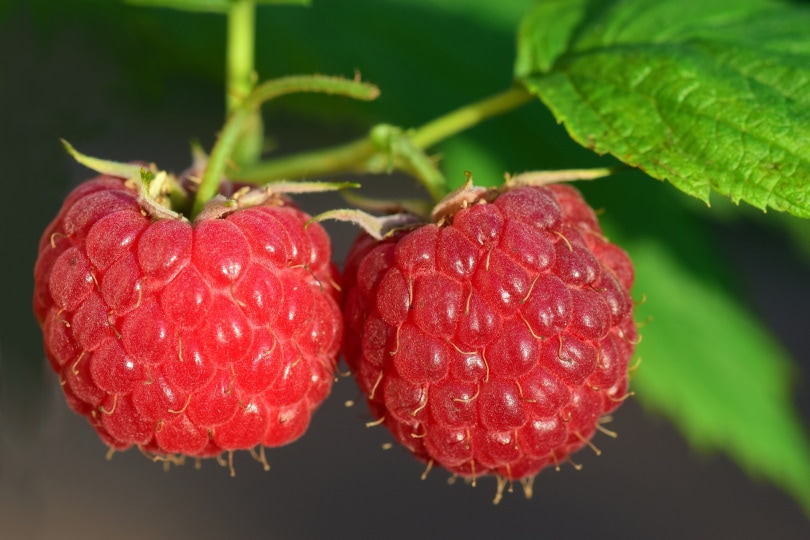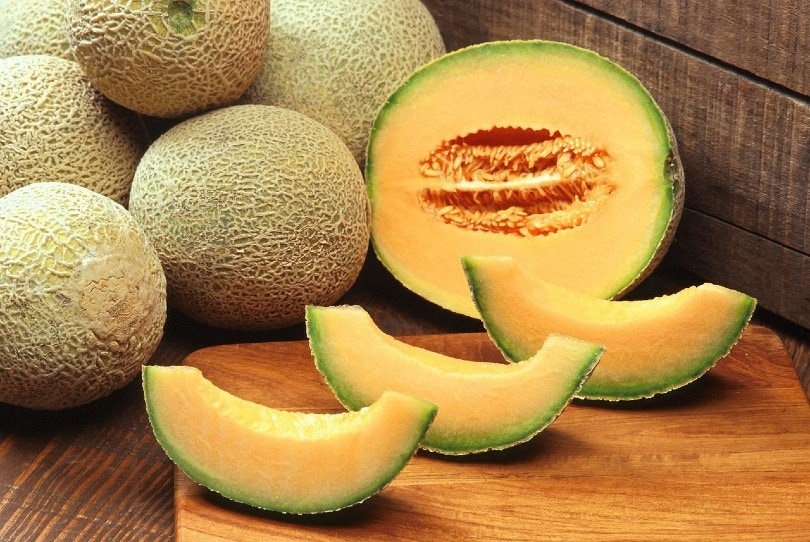
As part of a balanced diet, turtles should be fed a mix of plant and animal foods, with the exact proportions depending on the species. Leafy greens should make up most of the plant material, but turtles may also enjoy snacking on fruit. It is important to remember that the reason fruit is so appealing is due to the high sugar content, so it should only be fed in small portions. If you aren’t sure what fruit turtles can eat, we’ve got you covered. Here are 10 safe fruit options you can feed your turtle.
The 10 Fruits Turtles Can Eat
1. Figs

Figs are one of the best fruits for turtles to eat because they are high in calcium. Turtles require a lot of calcium in their diet to keep their shell and bones strong and healthy. Fresh, uncooked figs contain the most nutrition. Wash the fruit thoroughly and chop it into small, bite-sized pieces before offering them to your turtle. Although figs contain valuable nutrients, they’re also high in sugar and should only be offered in limited quantities.
2. Bananas

Bananas are another safe fruit that turtles may enjoy occasionally. The soft texture is easy for them to eat, and the sweet flavor makes them tasty for your pet. Bananas contain many vitamins and minerals, including calcium and magnesium.
Magnesium helps activate Vitamin D, which is another vital nutrient that keeps your turtle’s shell and bones healthy. Bananas can be fed to your turtle with or without the peel. Serve ripe bananas only since the green fruit can be hard to digest. Don’t go overboard with them though, as their phosphorus to calcium ratio is not ideal.
3. Raspberries

Raspberries are another safe, nutritious option to offer your turtle. These delicious berries contain less sugar than many fruits. Some of the beneficial nutrients found in raspberries include calcium and antioxidants. You can feed either fresh or thawed frozen raspberries to your turtle.
Frozen raspberries contain similar nutrient levels as fresh ones and are available year-round in most areas. Remove any leaves and wash the berries thoroughly before feeding them. Although raspberries don’t have as much sugar as other fruit, they should only be offered as a treat.
4. Apricots

Apricots are not only a safe fruit for turtles but are also high in calcium. Most people are familiar with dried apricots, but fresh fruit is preferred when feeding turtles. Dried fruits tend to be higher in sugar than fresh ones, but fresh apricots might be harder to find compared to some of the other fruit on our list. Wash the fruit, remove the pit, and slice the apricot into bite-sized pieces for your turtle.
5. Cantaloupe

Melons, including cantaloupe, are excellent, safe snacks for turtles. Cantaloupe is high in calcium, potassium, fiber, and vitamins. The melon also has a high moisture content, which can help keep your turtle hydrated. Choose ripe cantaloupe for your turtle and remove the seeds and rind before feeding. Cut the melon into bite-sized chunks and offer it as a treat or as part of your turtle’s daily selection of plant-based foods.
6. Strawberries

Strawberries are one of the tastiest fruits to serve your turtle, and they love them. The bright red berries contain numerous beneficial nutrients, including calcium, magnesium, antioxidants, and fiber. Fresh and frozen strawberries can be fed to your turtle, but make sure to thaw the frozen berries completely.
It’s best to wash fresh strawberries thoroughly or choose organic fruit if possible. Remove the stems and leaves before feeding the berries to your turtle. They can be offered whole or chopped as part of a “fruit salad.”
7. Dates

Fresh dates are a sweet and safe fruit for your turtle to eat. Medjool dates, particularly, are high in calcium, making them a nutritious snack for turtles. However, they are calorie-dense and contain a lot of sugar, so they are best as an occasional treat or in small amounts. Dried dates contain even more calories per serving and often contain added sugar. Stick with fresh dates, and remove the pit before feeding them to your turtle.
8. Pears

Pears are one of the most widely available, inexpensive fruits you can buy. With multiple varieties, your turtle can safely enjoy pears all year round. Rotate the type of pear you offer for the most nutritional value. They are also great for keeping your turtle “regular”.
The fruit contains many beneficial nutrients, including fiber, calcium, vitamins, and antioxidants. You can feed pears to your turtle washed, cored, and cut up. Avoid feeding canned pears, which often contain added sugar and usually don’t have the same nutrient levels as fresh fruit.
9. Peaches

Peaches can be found fresh during the summer months in the United States. They’re available frozen or canned year-round. The tasty fruit is a delicious, safe choice for your turtle. Peaches are low in calories compared to other fruits. They also contain calcium, fiber, multiple vitamins, and antioxidants. Fresh or frozen peaches are the most nutritious, but canned peaches aren’t far behind. Make sure you remove the pit before feeding fresh peaches to your turtle.
10. Mangoes

Mangoes are a sweet, tropical fruit that is safe for turtles. They can be purchased whole, cut, frozen, or dried. However, frozen mango is the best option for your turtle. It contains calcium, antioxidants, fiber, and multiple beneficial vitamins. You can peel whole mangoes, remove the pit, and cut up the fruit to feed your turtle. Dried mango is generally higher in calories and may contain added sugar, making it a less nutritious option.
Conclusion
These 10 fruits may be safe for turtles to eat, but they shouldn’t make up a large part of your pet’s diet. Whether your turtle is aquatic or semi-aquatic, the high sugar content of fruit is only suitable as an occasional treat. A turtle’s nutritional needs vary by age, size, and species, so talk to your veterinarian to determine what’s best for your pet. Before changing or adding supplements to your turtle’s diet, check with your vet first.
Featured Image Credit: Noah Currey, Shutterstock
The post What Fruit Can Turtles Eat? 10 Vet Approved Safe Options appeared first on Pet Keen.



